"SLC22/WK1: Advanced Electrical Transformers and the Power Factor." By @rossnenye
0 comments
| Name the two transformers from the diagram and explain why. |
|---|
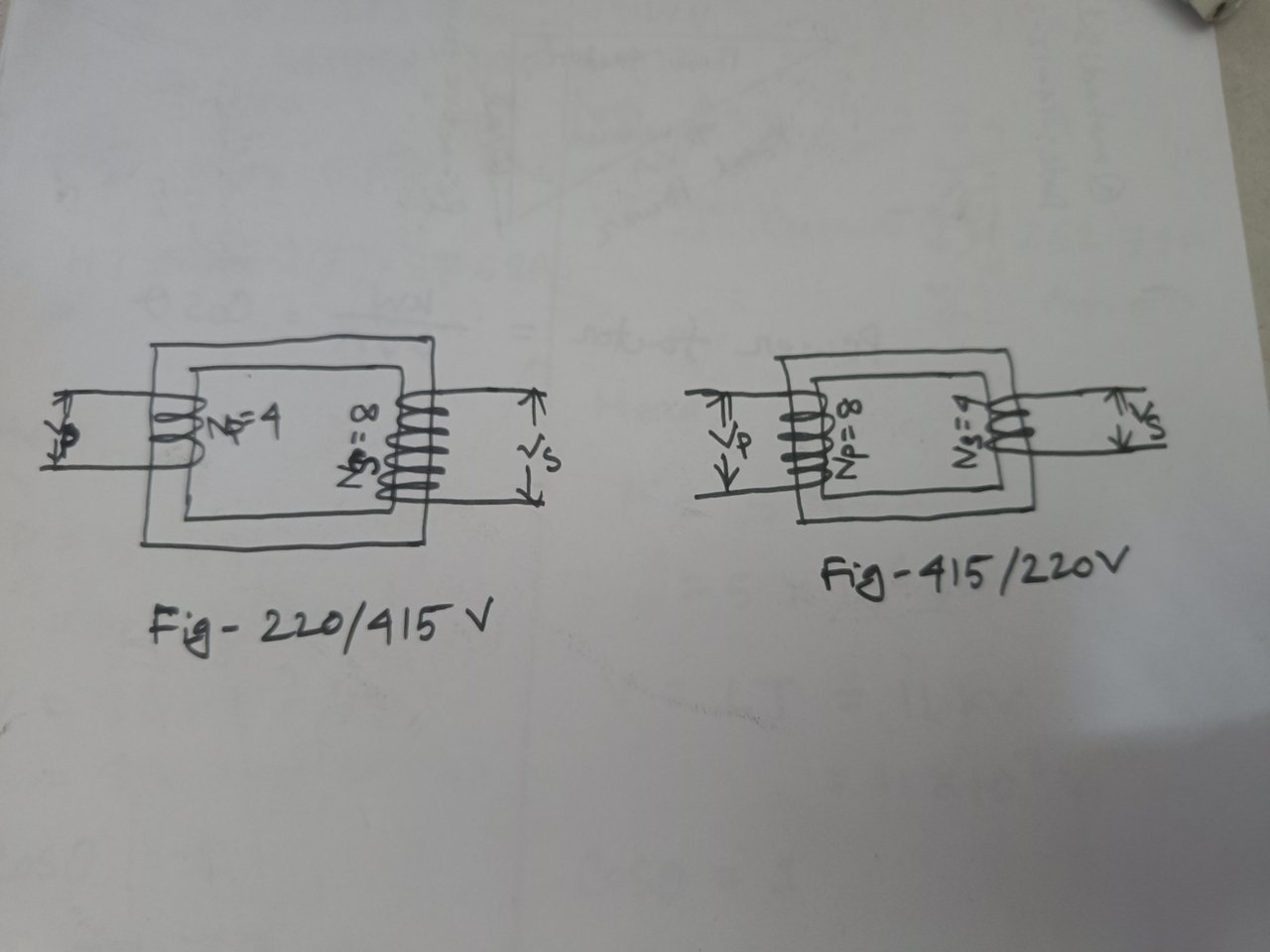
From the diagram, the two Transformer drawn there is the Step up and Step down Transformer.
The Transformer on the right side is the Step down Transformer. This is because from the Diagram, we can deduct that the Secondary Voltage (Vs) is lower than the Primary Voltage(Vp). From the label "415/220V" which is in the Transformer it shows that the the Primary Voltage is 415 V and the Secondary Voltage 22 V. So this Transformer steps down the Voltage from 415 V to 220 V which is suitable for use.
The Diagram on the left side is the Step up Transformer. From the diagram, we can see that it's Secondary Voltage (Vs) is higher than the Primary Voltage (Vp). From the label "220/415V" which is in the Transformer it shows that the Primary Voltage is 220 V and the Secondary Voltage 415 V. So this Transformer steps up the Voltage from 220 V to 415 V which is suitable for use.
| What is the turn ratio of the two transformers? |
|---|
- Turn ratio = Np/Ns = Vp/Vs
Step down transformer (415/220 V):
Primary turns Np= 8
Secondary turns Ns = 4
The turn ratio is therefore = 8/4 = 4/2 = 2/1
The turn ratio = 2:1
- Step up Transformer (220/415 V):
Primary turns Np = 4
Secondary Ns = 8
The turn ratio is therefore = 4/8 = 2/4 = 1/2
The turn ratio =1:2
| B. Identify the various parts of a power transformer with a picture and write the function of each part. |
|---|
- A: Conservator
This is a reservoir which stores extra Transformer oil which can be drawn back to the Transformer when needed.
- B: Radiator
This is a set of fine tubes that helps to remove heat generated from the Transformer oil.
- C: LT Bushing
It insulates and connects the low voltage winding to the Transformer Tank.
- D: HT Bushing
It provides Electrical insulation between the high voltage Conductor and the Transformer Tank thereby ensuring smooth operation.
- E: Breather
The transformation receives air through the breather, it contains a Silica which dehumidifies air.
- F: Buchholz Relay
This is a gas-operated relay that notices the presence of excessive gas which shows a potential Internal Fault
- G: Temperature Gauge
This component of the Transformer is used to monitor the Temperature of the Transformer oil inorder to avoid overheating and damaging the Transformer.
| C. What type of transformer is used for your home's electricity? Describe your understanding with pictures. |
|---|
The type of Transformer used in my home electricity is known as Distribution Transformer. This type of Transformer is smaller in size and it's used by Electricity Distribution Companies to reach various Customers. It steps down High Electricity Voltage from a Power Gride to a usable level suitable for various home appliances.
| D. Calculate how many KVA transformers will be required for a 5000 KW load. |
|---|
To calculate this,
KVA = ?
KW = 5000
PF = 0.9
Therefore,
KVA = KW/PF
KVA = 5000/0.9
= 5555.56
= 5556 KVA
Therefore, 5556 KVA transformer will be needed for a 5000 KW load.
| E. Look at the transformer's nameplate in the picture and find out the following points. |
|---|
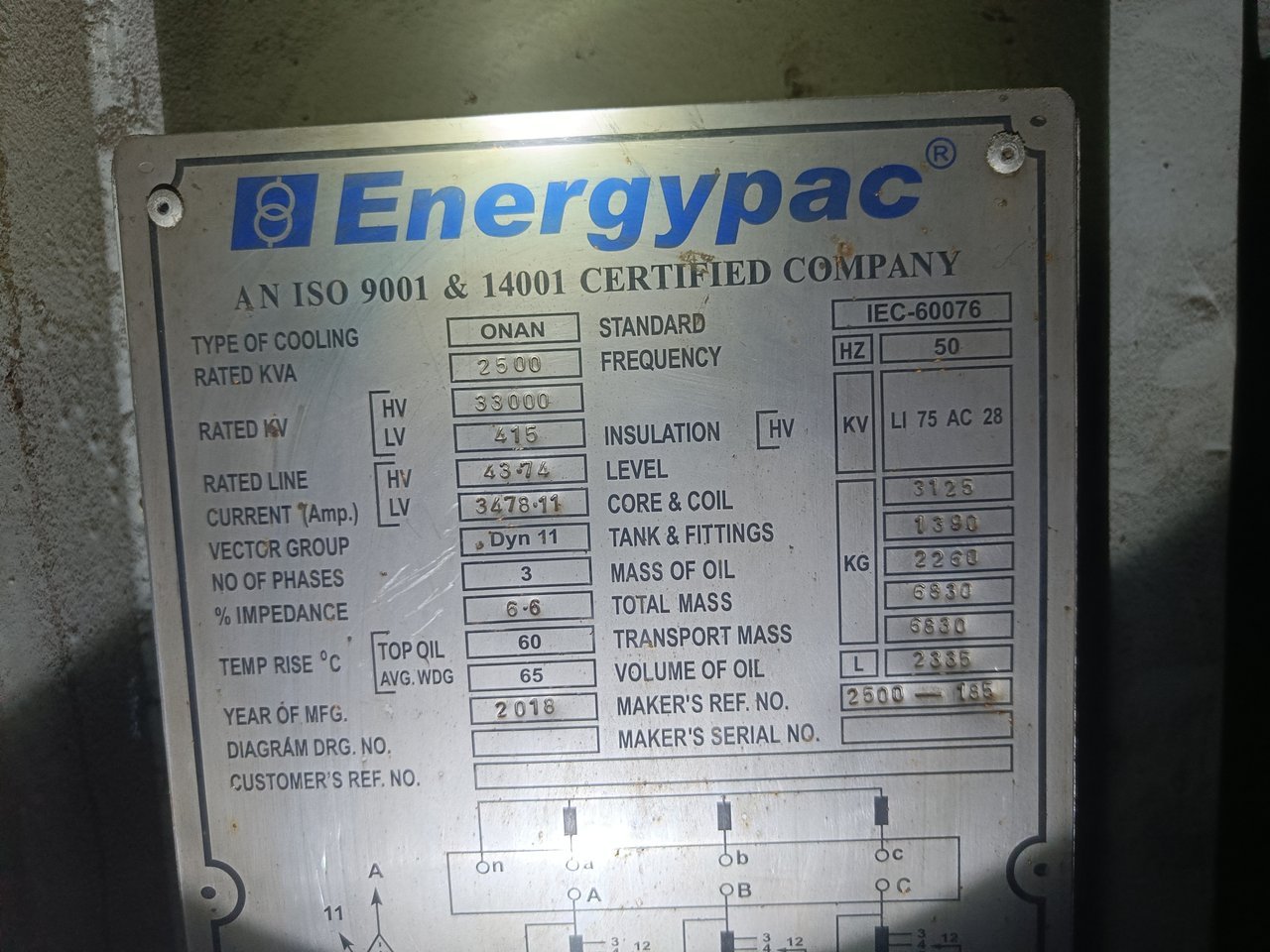
Transformer Name: Energypac
Transformer Rating: 2500 kVA
Primary Voltage(HV): 33,000 V
Secondary Voltage (LV): 415 V
Current(HV): 43.74 A
Current(LV): 3478.11 A
| F. Find the currents in the high voltage (HV) and low voltage (LV) sides of the 33/0.415 kV, 2.5 MVA transformer. |
|---|
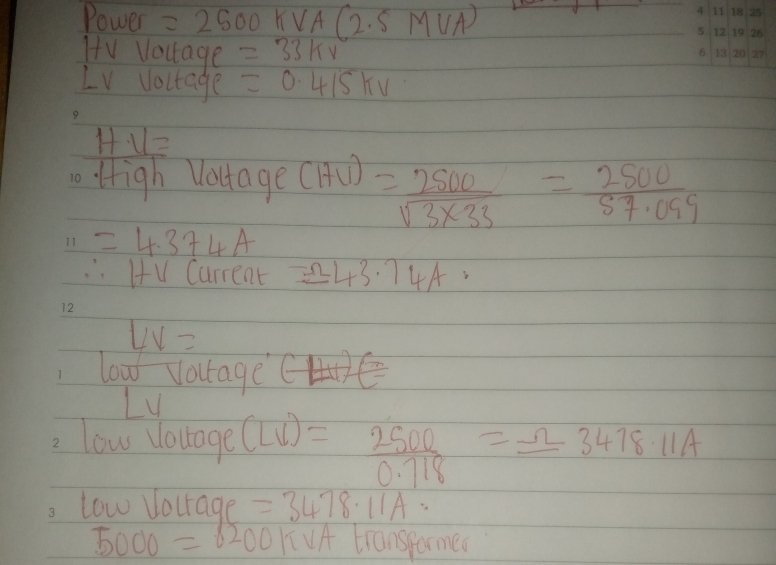
| G. What do you mean by power factor? What is the power factor value given by the electricity supply company in your country? |
|---|
Power factor is used to measure Electrical efficiency. It is the ratio of real power which is the Power that does the work(Kw) to apparent power which is the total power supplied to the circuit, including both reactive and real power, the unit (KvA). The power factor value of my Country Nigeria 0.90
| H. Given the nameplates of the two transformers shown in the figure, write three differences. |
|---|

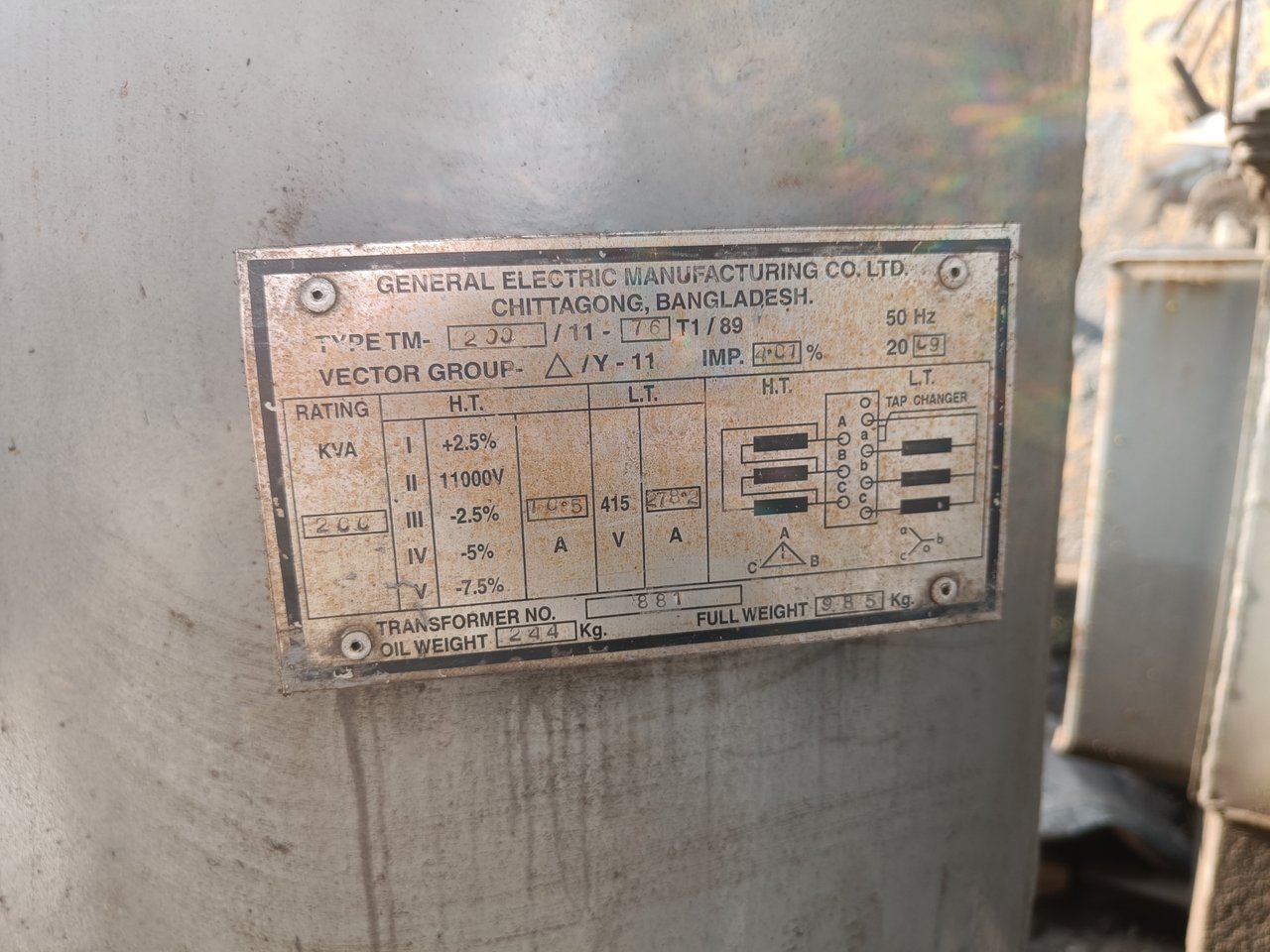
| EnergyPac | General Electric Transformer |
|---|---|
| The Total mass is 6830 kg | The total mass is 985kg |
| The voltage level is 33, 000 V | The energy level is 11, 000 V |
| The KVA rating is 2500 KVA | The KVA rating is 200 KVA |
Determine True/False:
The name of the oil used in a transformer is pyranol. True
The core loss of the transformer is in the winding. False
The efficiency of the transformer is less than that of other electrical devices. False
The transformer rating is in KW. False
The transformer's insulation test is done with a megger meter. True
Thanks for reading my post, I invite @adachukwu, @ogechukwu-martha and @ukpono to participate in this contest.
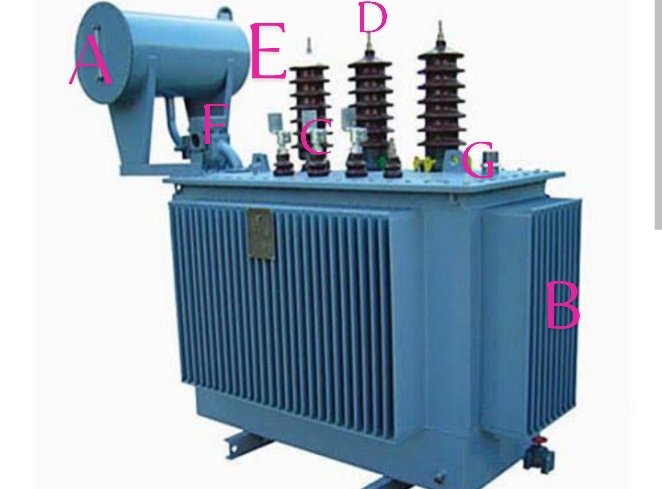
Comments